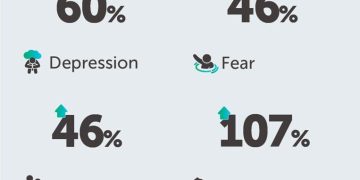Ever find yourself in a constant tango with hunger pangs after a night of patchy sleep? Or perhaps you’ve noticed an eerie correlation between your late-night Netflix binges and your tight-fitting jeans? Welcome to the mysterious realm where slumber and weight-loss intertwine, a world that operates far beyond our conscious understanding. In the intricate dance of health and wellness, sleep and weight form a tantalizing duo whose synchrony (or lack thereof) can reshape not just your waistline but your overall well-being. Prepare to embark on a fascinating journey exploring the significant but often overshadowed role of sleep in weight management. Brace yourself, your bedtime routine is about to get a serious reality check.
Countless studies show that sleep deprivation can directly lead to weight gain. When we don’t get enough rest, our body goes into survival mode and starts storing fat as a self-defense tactic. Moreover, it disrupts the balance of our hormones including ghrelin and leptin, which are responsible for regulating hunger and fullness respectively. When we’re sleep-deprived, the level of ghrelin rises, increasing our appetite, while the level of leptin drops, making us feel less satiated after eating.
Good quality sleep is a keystone for metabolism and weight management. Lack of adequate sleep affects your metabolic rate and this can affect the way your body processes foods, particularly sugars and carbohydrates. Sleep deprivation can lead to insulin resistance, leading to high blood sugar levels and increasing the risk of type 2 diabetes. Moreover, when the body is denied sleep, it releases higher levels of an enzyme called tgfb1 that promotes storage of fat. Conversely, proper sleep sparks your metabolism, helps you burn more calories and makes you more inclined to opt for healthier choices. Here are some actionable tips to improve your sleep quality:
- Create a sleep schedule: Go to bed and wake up at the same time every day, even on weekends.
- Avoid caffeine late in the day: It can keep you awake long into the night.
- Make your bed just for sleep: The bed should be associated with sleeping, not work or entertainment.
- Ensure your room is dark: Light can affect your body’s internal clock and interrupt your sleep.
| Good Sleep Habits | Effects on Metabolism |
|---|---|
| Recommended 7-9 hours of sleep | Enhances metabolism |
| Regular sleeping schedule | Regulates body’s internal clock |
| Sleeping in a dark room | Reduces sleep interruptions |
Cultivating good sleep habits is the first step towards effective weight management. Remember, weight management isn’t solely about diet and exercise – it’s about achieving a balance in all areas of wellbeing, including quality sleep. Start prioritizing your sleep today and experience the profound changes it can bring to your health and waistline.
Rest your way to a trimmer shape, with a better understanding of sleep’s significant role in weight management. Bid adieu to late-night Netflix marathons or phone-scrolling that delay your date with the dreamland. Instead, embark on a journey to a consistent quality sleep routine, creating a sanctuary for your dreams and body wellness. As you explore the moonscape of rest, remember that every well-timed nap or good night’s sleep is a conscious step towards a healthier, slimmer you. When your head hits the pillow tonight, know that you’re not merely surrendering to fatigue, but actively shaping a healthier lifestyle. The silent hero of weight-loss – that snug, reliable blanket of quality sleep – is waiting. Embrace it and wake up to a newer, healthier, and lighter you. Sleep tight and weigh right!












































